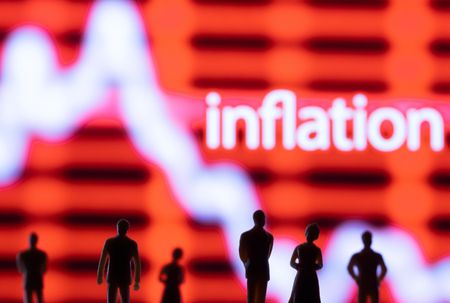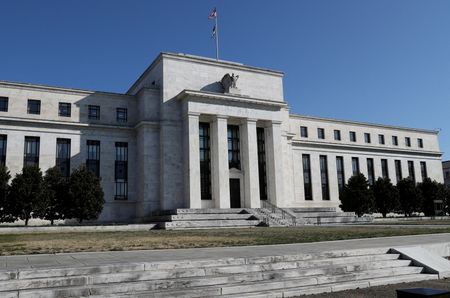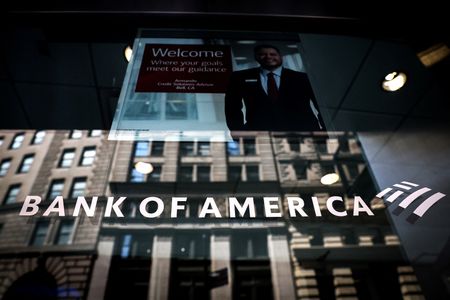By Davide Barbuscia
NEW YORK (Reuters) – Rising recessionary concerns are seeing some investors reduce risk in their credit exposure as they brace for an economic slowdown whose magnitude remains highly uncertain.
U.S. bonds have been hurt by rising interest rates and unrelentingly high inflation, but over the past few weeks the market focus has shifted more heavily towards fears that the U.S. Federal Reserve will bring on a recession as it tries to tame inflation.
As pressure in credit piles up, some investors are looking to trim exposure to lower-rated credits and buy bonds of companies likely to be more resilient in an economic downturn.
“We will always own high yield, we’ll always own some emerging markets, but I think we probably just want to own less going forward in the next three months, six months,” said Nick Hayes, head of global strategic bonds strategy at AXA Investment Managers.
“We want to improve the quality of the overall portfolio because maybe we are heading into a really uncertain time,” he said.
This may not be easy, bond traders said, partly because rising borrowing costs are likely to curb supply, which may limit investors’ ability to distribute their exposure between secondary and primary markets.
Benchmark 10-year Treasury yields – a barometer for mortgage rates and other financial instruments – have gone down to 2.99% from around 3.5% on June 14.
But the yield spread on the ICE BofA U.S. High Yield Index, a commonly used benchmark for the junk bond market, has gone up by over 50 basis points over the same period and its investment grade equivalent has also increased.
Credit spreads typically widen when risk of default rises.
High-yield spreads hit a two-year peak of about 600 basis points earlier this month. The Fed has never hiked rates with such tight credit conditions, BofA strategists said, noting that during both the 2001-2 dot-com collapse and the 2008 financial crisis, the Fed was cutting rates.
Still, high-yield spreads are not showing the level of stress in some prior crises.
Spreads widened to more than 2,000 basis points during the financial crisis and to over 1,000 basis points in early 2020 during the start of the coronavirus outbreak.
For Jonathan Duensing, head of fixed income, U.S.
portfolio manager at Amundi U.S. asset management, credit spreads point to an economic slowdown, although not a severe one, but they could widen further.
“We’re still a little bit more cautious on overall exposure … selecting the companies that we feel are going to be best positioned to maybe withstand the upcoming environment,” he said.
RECESSION SIGNALS
Meanwhile recession signals are becoming more worrying.
Some Wall Street banks in recent weeks raised their expectations of an economic downturn, and the inversion of the U.S.
two-year/10-year Treasury yield curve – widely seen as a precursor to recession – has grown to its widest since 2000.
“What’s unusual about this slowdown … is that there are shock absorbers suggesting that it might not be a very deep slowdown if it happens,” said Viktor Hjort, global head of credit strategy & desk analysts at BNP Paribas, referring to factors such as companies being in good financial health as they come out of the COVID-19 pandemic.
Still, it could be prolonged by the Fed’s lack of ability to help as the central bank is constrained by inflation, he said.
A combination of higher interest rates and economic contraction could lead to more defaults among U.S. companies, and an adjustment of investor positions which would, in its turn, hamper companies’ access to the debt markets.
“There’s no question that default rates will increase.
It’s just a question of by how much and how quickly,” said James Gellert, CEO of analytics company RapidRatings.
Debt bankers say markets are still open for borrowers willing to pay premia but that issuers have been considering replacing bonds with short-term instruments or reducing the size of their fundraising exercises.
For companies that cannot afford to postpone their funding plans, the path has become uncertain.
“If the new issue side of it isn’t there, then trying to find secondary bonds can be problematic,” said Dom Holland, head of U.S.
business development at LedgerEdge, a distributed ledger technology corporate bond trading platform.
(Reporting by Davide Barbuscia; Editing by Megan Davies and Daniel Wallis)








